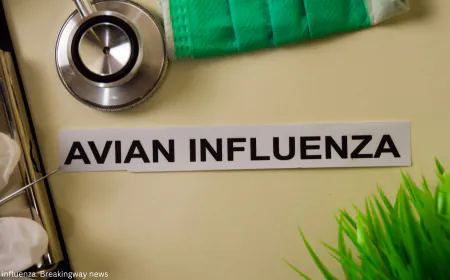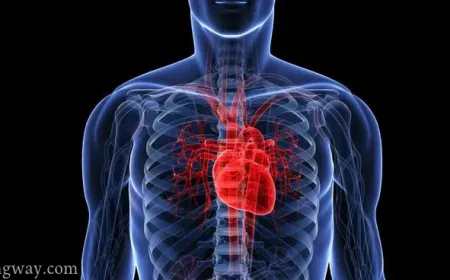What Are the Causes of Infertility in Women and How to Deal with It
Learn about common causes of infertility in women and effective solutions to manage it. Get health insights with Breaking Way.

Causes of Infertility in Women
1. Ovulation Disorders
Ovulation is the process of releasing an egg from the ovary, a crucial step for conception. Disorders in ovulation can lead to infertility. Common causes include:
- Polycystic Ovary Syndrome (PCOS):A condition that leads to irregular ovulation and the accumulation of small cysts on the ovaries.
- Thyroid Disorders: Can affect hormone balance and regulate ovulation.
2. Fallopian Tube Blockage
The fallopian tubes are the pathways that carry the egg from the ovary to the uterus. Blockage of these tubes can prevent the egg from reaching the uterus, causing infertility. Possible causes include:
- Pelvic Inflammatory Disease: Conditions like pelvic inflammatory disease or gonorrhoea can cause blockages or damage to the fallopian tubes.
- Previous Infections: Infections such as appendicitis can lead to scarring.
3. Uterine Problems
Some issues with the uterus can make it difficult to conceive. These include:
- Fibroids: Non-cancerous growths in the uterine wall that can affect the uterus's function.
- Congenital Abnormalities: Some congenital abnormalities in the shape of the uterus can lead to difficulties in pregnancy.
4. Endometrial Issues
The endometrium is the lining of the uterus Disorders such as:
- Endometriosis: Where endometrial tissue grows outside the uterus, causing pain and infertility.
- Endometrial Inflammation: Can affect the uterus's ability to support pregnancy.
How to Deal with Infertility in Women
1. Early Diagnosis
It's crucial to consult a specialist if you experience difficulties in conceiving. The doctor can perform tests to identify the cause of infertility and recommend appropriate treatments.
2. Medical Treatment
- Medications: May be used to regulate menstrual cycles and stimulate ovulation.
- Surgery: In some cases, surgery may be necessary to remove adhesions or correct structural problems in the uterus or fallopian tubes.
3. Fertility Treatments
- In vitro Fertilization (IVF): A technique that assists in fertilizing the egg outside the body and then implanting it into the uterus.
- Intracytoplasmic Sperm Injection (ICSI): Directly injecting sperm into the egg to facilitate fertilization.
4. Lifestyle Changes
- Diet: A balanced diet can improve overall health and the body's ability to manage infertility issues.
- Exercise: Regular physical activity can help regulate hormones and improve general health.
5. Emotional Support
Infertility can be an emotionally challenging experience. It may be helpful to speak with a mental health professional or join a support group to share experiences and cope with psychological stress.
Understanding the causes of infertility and how to manage them helps provide support and assistance to women facing this challenge. With early diagnosis and appropriate management, the chances of successful pregnancy can be improved, and the challenges of infertility can be better addressed.
Sources
1. National Institute of Child Health and Human Development (NICHD). "What Causes Infertility?" [NICHD]
2. American Society for Reproductive Medicine (ASRM). "Diagnosis and Treatment of Infertility." [ASRM]
3. Mayo Clinic. "Infertility in Women: Symptoms and Causes." [Mayo Clinic]
4. Cleveland Clinic. "Understanding Infertility in Women." [Cleveland Clinic]
What's Your Reaction?



















































